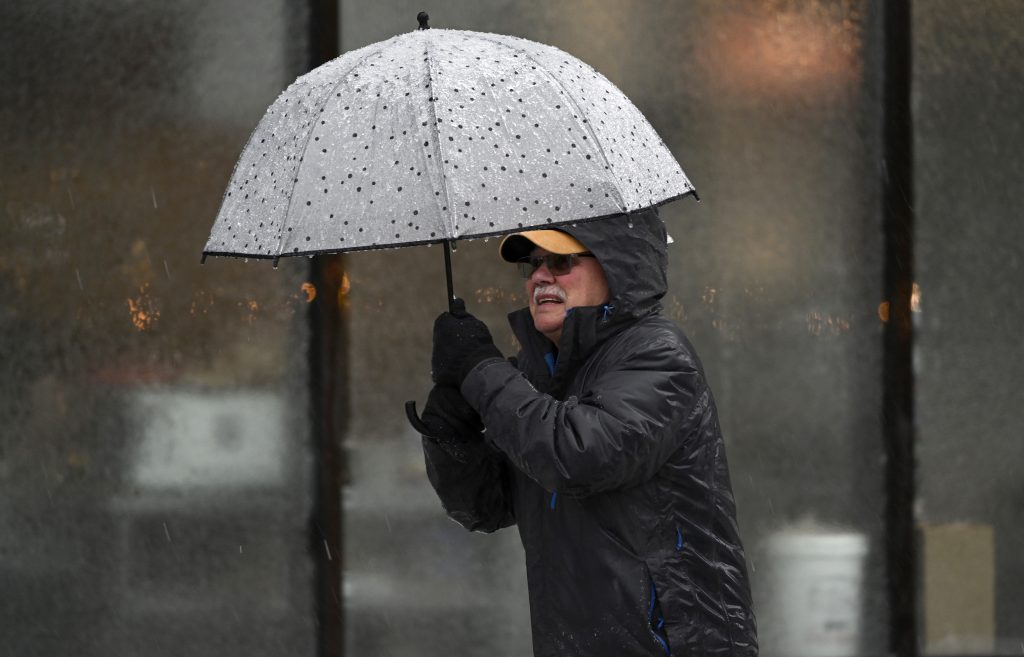Radiation fears prompt extra controls for Japanese food imports to Canada
Posted March 23, 2011 7:24 pm.
This article is more than 5 years old.
Canadian officials put additional controls in place Wednesday for Japanese food imports, amidst public concern that the Asian country’s ongoing nuclear crisis has contaminated its food supply.
Officials said Canadian consumers have no need to worry about the safety of their food, but the Canadian Food Inspection Agency did announce that in addition to existing controls, milk products, fruits and vegetables from areas closest to the affected nuclear power plant will not be allowed entry to Canada without documents verifying their safety.
“The Canadian food supply is not at risk,” Alice d’Anjou, a spokeswoman with the food agency, said in an email response to queries.
For Ritsu Kawazo, owner of the Izumi-Ya Japanese Marketplace in Richmond, B.C., the additional measures won’t have any immediate impact but he said the future of his Japanese import store is uncertain.
Kawazo, said the rules may make it harder for him to get some goods from his suppliers in Japan. He said he’s beginning to wonder how he’ll stay in business amidst public concerns that food from his home country is unsafe, and worried the import controls could escalate.
He just received a shipping container that had set sail from Kobe about a month before disaster hit.
“I’m still okay because I have a new container — maybe another month, a month and a half of merchandise — but after that if (the) Canadian government just stops imports from Japan, I don’t think we can survive,” said Kawazo, who has operated the business for nine years.
Japanese products account for just 0.3 per cent of Canada’s total food imports, its top five products being non-fermented green tea, sesame oil, scallops, sauces, and enzymes. Most of those will not be affected by the new rules.
Japan itself has banned the sale of food from some areas surrounding the crippled nuclear plant, which has been leaking radiation for nearly two weeks since the region was hit by an earthquake and ensuing tsunami.
On Wednesday, Japanese consumers cleared store shelves of bottled water after tests found the levels of radioactive iodine in tap water in Tokyo, more than 200 kilometres from the plant, exceeded safety standards for infants to drink.
Radiation from the nuclear plant has seeped into raw milk, seawater and 11 kinds of vegetables, including broccoli, cauliflower and turnips from surrounding areas.
Kawazo’s mother still lives in the southern Japanese city of Osaka and she told him it’s getting harder to get food and clean water.
The U.S. Food and Drug Administration said it was halting imports of Japanese dairy and produce from the region near the facility and Hong Kong went further, like Canada requiring that Japan perform safety checks on meat, eggs and seafood before it will accept those products.
D’Anjou said Health Canada and food inspectors were “actively monitoring the situation” and the measures could be adjusted as circumstances change in Japan.
The enhanced restrictions are an additional safeguard to existing import controls, officials said, which already included monitoring for radioactive isotopes in shipments. Food imports from the Fukushima, Gunma, Ibaraki and Tochigi prefectures surrounding the failing nuclear plant are now under particular scrutiny, the agency said.
Officials said Canadian food inspectors are able to detect even microscopic contamination at levels that would not have any impact on consumer health.
In B.C., the provincial health officer again urged Canadians on Wednesday to be prepared rather than panicked in response to the nuclear crisis in Japan, and reminded the public that radiation levels remain “minute” at monitoring stations along the West Coast.
Dr. Perry Kendall said that although there had been a tiny and expected increase in radiation levels, there was still no need to worry in B.C.
Kendall said current levels were within the normal range, and remained less than what a person would experience on a long-distance flight.
Despite repeated assurances, pharmacies and military surplus stores in B.C. say members of the public are still scrambling to buy medication for radiation exposure and supplies like Geiger counters and gas masks.
The provincial health officer warned that taking the medication can be harmful in the absence of high levels of radioactivity, and he said residents should instead take the tragedy as a reminder to make sure they’re prepared for an emergency in B.C.








